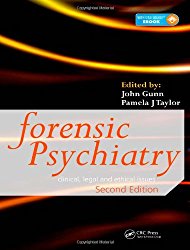Forensic Psychiatry - The Scheme
Entry to the scheme
What do I need in order to apply?
Applicants are required to be UK-registered doctors who have completed their Core Training in psychiatry and passed their postgraduate examinations to become Members of the Royal College of Psychiatrists (MRCPsych). At this stage, trainees can apply for specialist training posts in their chosen specialty – including Forensic Psychiatry.
New starters to the scheme start in February and August every year, following a national recruitment process run from the North West.
As a forensic psychiatrist, you will often be working with patients who have severe mental illnesses and who can present with challenging behaviour. It is essential that trainees are empathic, compassionate and committed to working with patients who are often fearful, insightless and challenging, at least in the early stages of their illness. A strong sense of therapeutic boundaries is also of critical importance. Our patients’ rights need protecting and many of our trainees undertake additional training in this area, particularly with Masters Degrees.
If you are successful in applying to the programme and go on to complete your 3 years of training, you will receive a Certificate of Completion of Training (CCT) in Forensic Psychiatry. You are then eligible for entry onto the General Medical Council’s Specialist Register and can apply for a job as a Consultant Forensic Psychiatrist. During the training, you will be paid according to the standard NHS payscale.
Life experience is welcome and valued
In contrast to other areas of medicine, we welcome people with significant experience outside psychiatry, whether in other areas of the medical profession, or in other roles entirely. Many of our trainees come from Graduate Entry to Medicine (GEM) programmes. “Life experience”, and all it brings with it is, a regarded as a valuable asset, rather than a weakness.
Forensic psychiatry requires a thorough working knowledge of the Mental Health Act 1983 and related legislation, as well as frequent involvement with patients, solicitors, barristers and the Crown Court. A proportion of entrants to the scheme bring prior knowledge of the legal and criminal justice systems and we are seeing more applicants who have degrees in both medicine and law. This is by no means essential, and significant time is dedicated to developing a working knowledge of the law as it relates to mental healthcare. Many of our trainees study for Masters Degrees in mental health law or medical law whilst they are with us. Postgraduate courses at Cardiff University and Northumbria University are highly regarded and popular. We support all of our trainees with time and funding for study leave.

The Gold Standard Forensic Psychiatry textbook – click for reviews on Amazon
The structure of Higher Specialist Training in Forensic Psychiatry
Higher training in forensic psychiatry takes a minimum of 3 years. During this time, trainees spend significant time in a medium secure hospital as well as time in low secure and high secure settings as well as prisons. The recently updated curriculum is entirely competency based, so there are no specified minimum time periods for placements – it takes as long as it takes to develop the required skills.The Royal College of Psychiatrists’ Forensic Faculty Education and Curriculum Committee (FFECC) makes it clear that medium secure experience forms the basis for training in forensic psychiatry. As such, Arnold Lodge has long been a popular placement on the scheme. Trainees often start their training at Arnold Lodge and then move on to Wells Road, Rampton or Lincoln to gain further experience in different settings, sometimes returning to Arnold Lodge for a more specialised placement later on. This is by no means mandatory, however, and all placements are allocated on the basis of individuals’ training needs.Clinical placements are usually for 6 or 12 months and a standard job plan includes 4 days every week of clinical work. The fifth day is set aside for research time and special interest time.
What is on the rotation?
Clinical placements are available within the following services:
1 Arnold Lodge
Arnold Lodge is a medium secure hospital (MSU) in Leicester. Several specialist services are available at Arnold Lodge:
- The Male Mental Illness Service – Clinical Supervisors are Dr Geelan, Dr Hardie and Dr Taylor
- The Male Personality Disorder Service – see our YouTube video – Clinical Supervisors are Dr Banerjee and Dr Gibbon
- Women’s Service, incorporating the Women’s Enhanced Medium Secure Services (WEMS) – Clinical Supervisor is Dr DiLustro
2 The Wells Road Centre
The Wells Road Centre is a low secure hospital in Nottingham which also has out-patient Community Forensic Services. Clinical Supervisors are Dr Khalifa, Dr Saleem and Dr Taylor
3 Rampton Hospital
Rampton Hospital is a high secure hospital near Retford in Nottinghamshire. The Clinical Supervisor in the Male Mental Illness service is Dr Clark, in the Male Personality Disorder Service are Dr D’Silva, Dr Egleston, Dr Vollm and Dr Yanson.
4 The Francis Willis Unit
The Francis Willis Unit is a low secure hospital in Lincoln with an out-patient community forensic service.
5 The Wheatfield Unit
The Wheatfield Unit is a low secure unit within Berrywood Hospital in Duston, near Northampton. The Clinical Supervisor is Dr Steffan Davies.
6 Prisons
Trainees also spend time in prisons during their training. A wide variety of placements is available with Nottinghamshire Healthcare Trust’s Offender Health Directorate. Additional prison experience is available in conjunction with other Trusts and prisons, including Northamptonshire Healthcare NHS Foundation Trust.
Research
We can provide trainees with expert support and advice regarding research, from Dr Birgit Vollm, Professor in Forensic Psychiatry at Nottingham University. Many of our Clinical Supervisors are also active in research, including Dr Najat Khalifa, Consultant Forensic Psychiatrist and Honorary Lecturer, Dr Simon Gibbon and too many others to list here. Needless to say, we have a large, active and varied body of research underway and a long list of projects which are just waiting for another pair of hands.

“A must read book for the junior doctor” – click for reviews on Amazon
Special Interest sessions
Special interest placements are an important part of higher training in Forensic Psychiatry. Half a day every week is set aside for a special interest session – chosen by the trainee in conjunction with their Clinical Supervisor. If you are particularly interested in any aspect of forensic mental health practice and would like more experience in that area, you have the dedicated time to pursue it. Some trainees spend this time in another region of the country in very specialised services which fascinate them.
Medicolegal work
Very many doctors in a broad range of medical specialities are involved in medicolegal work. This involves writing reports for solicitors in relation to personal and occupational injury cases, criminal cases, family law cases and other areas. This work is often an afterthought in many specialties, with no experience or training available until a doctor reaches Consultant level, at which point they are expected to be an expert.
We do things differently in Forensic Psychiatry. We meet many of our patients for the first time in prison in the early stages of legal proceedings against them, often very shortly after they have committed a serious offence in the community. Many are then admitted to one of our in-patient services for treatment of a mental disorder, while the legal case continues. We are often asked to provide reports for the criminal courts giving an expert opinion on issues such as diagnosis, prognosis and suitability for Hospital Orders and Restriction Orders under The Mental Health Act. We also carry out this work for defence solicitors and the Crown Prosecution Service in relation to patients who are not under our care.

The Gold Standard medicolegal guide for psychiatrists – click for reviews on Amazon
This work is vitally important, as our expert opinion can inform proceedings against real people who have often committed serious criminal offences. Trainees are actively encouraged and supported to undertake this work, under close, expert supervision from Consultants. As well as preparing detailed forensic psychiatric reports, we often give evidence in Court and work closely with solicitors and barristers (defence and prosecution) in relation to this. It is a privilege to be involved in this detailed, important work, which often has huge implications for the lives of a wide range of people including defendants, victims and families.
Out of Programme Experiences
All Higher Specialist Training Schemes offer the opportunity to take part in Out of Programme Experiences, known as OOPs. These are optional, but popular. OOPs can be for Research (OOPR), Training (OOPT) or simply for a change or a break (OOPE – the E is for Experience). OOPRs and OOPTs count towards the three years of training and are subject to requirements in terms of supervision, job planning and structure. In most circumstances, trainees continue to be paid during OOPRs and OOPTs, because they are usually continuing to work in some capacity. They may find it difficult to arrange to continue on an on call rota during OOPRs and OOPTs, and this can result in a reduction in salary.
OOPEs are very different. Taking an OOPE puts your training on hold for the time you are away, and you are free to do whatever you want anywhere in the world – but you will not be paid. In recent years we have had a trainee who spent some time working in a women’s prison in Bolivia.
Detailed information on OOPs can be found in The Gold Guide, which does not make for light reading, but which sets out the framework for postgraduate medical education. Once the Gold Guide has set you on your way, maybe you need a Rough Guide…

Where will your OOP take you?